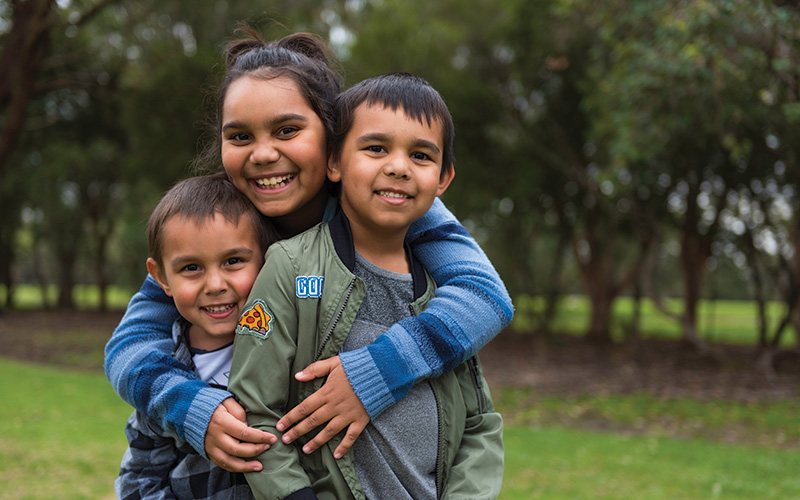Search
News & Events
Pneumonia rates improve in Aboriginal childrenNew research from The Kids for Child Health Research shows that the pneumococcal vaccine program has contributed to closing of the gap
News & Events
Little improvement in Aboriginal educational performanceThe most comprehensive survey every undertaken of Aboriginal education has found little significant improvement in outcomes for children in more than 30 years
Research
Caregiver-perceived racial discrimination is associated with diverse mental health outcomes in Aboriginal and Torres Strait Islander children aged 7-12 yearsExposure to racial discrimination in Aboriginal children increased the risk for a spectrum of interrelated factors linked to negative mental health
Research
General practitioners’ perceptions of their communication with Australian Aboriginal patients with acquired neurogenic communication disordersGPs report difficulty recognising acquired communication disorders and their lack of prioritising assessment and treatment of communication ability after brain injur
The WAACHS regional profiles look at all four volumes of results across the ATSIC regions of Western Australia.

The Institute's Standards for the Conduct of Aboriginal Health Research outline our ways of working with Aboriginal communities and peoples.
The social and emotional wellbeing of Aboriginal children and young people
Research
Healthy skin for children and young people with skin of colour starts with clinician knowledge and recognition: a narrative reviewSkin conditions most frequently encountered in paediatric practice include infections, infestations, atopic dermatitis, and acne. Skin of colour refers to skin with increased melanin and darker pigmentation, and reflects global racial and ethnic diversity. Managing skin conditions in skin of colour requires health equity nuance, which is rarely explicitly taught.
Research
Building a Nyoongar work practice model for Aboriginal youth mental health: prioritising trust, culture and spirit, and new ways of workingMainstream youth mental health services struggle to comprehend the connection between colonisation and service provision for Aboriginal young people. This is the consensus agreed by Aboriginal Elders from Perth, Western Australia and young Aboriginal leaders within their communities.
Research
Total joint replacement may be a valuable treatment for Aboriginal and Torres Strait Islander people with osteoarthritis, but uptake is lowDespite bearing a higher burden of osteoarthritis, little research has examined disparities in the access, utilisation and surgical outcomes associated with total joint replacement (TJR) among Aboriginal and Torres Strait Islander people.
